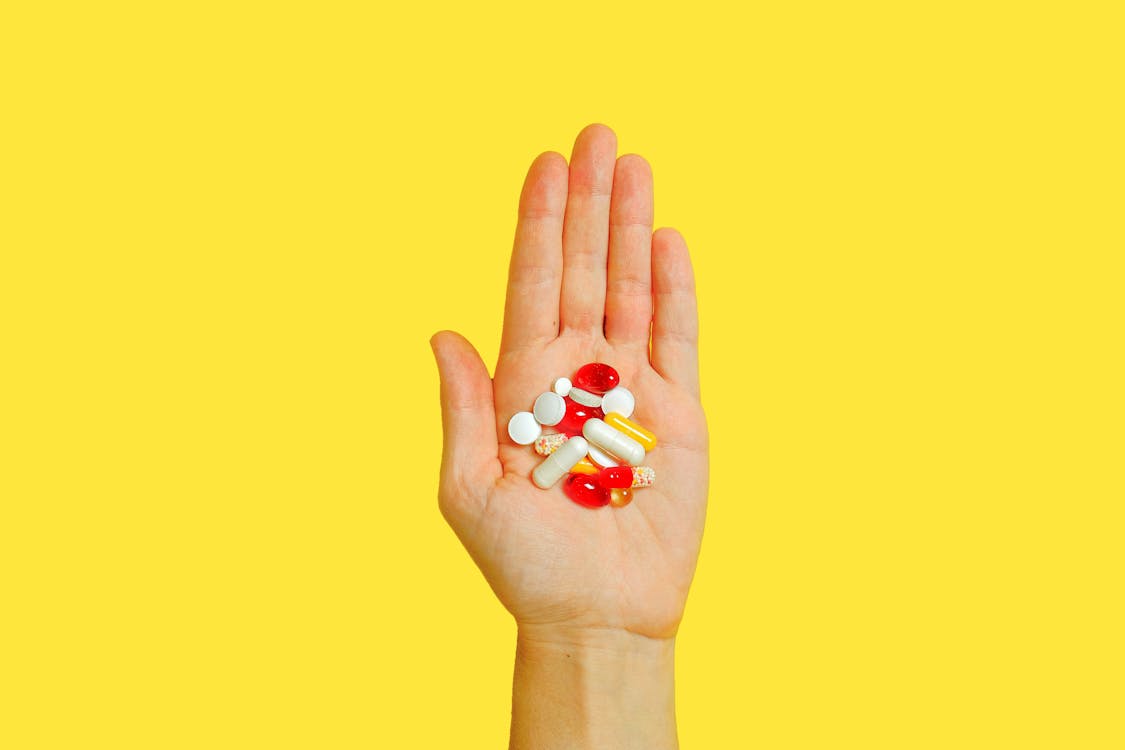Is Self-Medication with Over-the-Counter Drugs Safe?

Over-the-counter (OTC) drugs can be bought without a prescription at a pharmacy, drug store, or gas station. They can relieve itches, aches, or pains, prevent or treat diseases (e.g., constipation, tooth decay, or athlete’s foot), and manage recurring conditions (e.g., allergies or migraines).
Other OTC medications enhance certain moods, conditions, or abilities to achieve personal goals. Some examples of these drugs can boost concentration, accelerate weight loss, or increase energy.
OTC drugs aren’t immediately sold over the counter. They’re often monitored by a government agency, such as the Food and Drug Administration (FDA) in the United States (US). This regulation is necessary to ensure an OTC is effective and safe.
Are OTC Drugs Really Safe?
As mentioned, only the safest drugs can be designated as OTC. However, safety remains a major concern when reclassifying a prescription medicine as OTC. While they’re all scientifically and extensively examined, they don’t come without risks.
Take the following risks as examples:
- Some OTC drugs may interact negatively with other drinks, foods, supplements, or medicines, which leads to a variety of dangerous effects;
- Some OTC drugs can be contraindicated for use in people with certain medical conditions, such as taking decongestants (relieves blocked or stuffy nose) if you have high blood pressure;
- Some OTC drugs (and even prescription medicines) can cause unpredictable side effects or allergic reactions in some people, which may cause breathing difficulties;
- Some OTC drugs (and even prescription medicines) aren’t safe to take during pregnancy; and
- Incorrect dosage of OTC drugs, especially liquid ones, may cause harm to children.
Moreover, note that if a person is to get benefits from a drug, some degree of these risks has to be tolerated. In other words, defining an “acceptable degree of risk” varies from person to person—it’s a judgment call.
Dangers of Self-Medication
Self-medication, also known as self-administered drugs, is when you use medicine to treat any physical condition or emotional state without seeing a doctor. It can serve as a preventive measure or first aid to improve symptoms.
However, if not done correctly, self-medicating can be very dangerous. It may increase the risk of medical complications and lead to dependence or, worse, addiction to any substance, whether an OTC or prescription drug.
Here are some of the most common dangers of self-medication:
1.Substance misuse – Without prior and up-to-date consultation with a doctor, self-medicating can likely cause you to choose the incorrect medicine, dose, and treatment period for your current condition.
2.Substance dependency – Self-medicating for a period longer than necessary may shape your body to become dependent on it, usually as a coping mechanism. In the worst-case scenario, your body may need it to continue functioning correctly, even if you’re not sick.
3.Masking a medical condition – While it’s beneficial to alleviate symptoms, self-medicating may mask underlying medical conditions, which can be worse and fatal over time.
4.Drug interactions – Self-medicating can increase the risks of negative drug interaction, which occurs when taking multiple medications or combining medication with substance or alcohol use. This usually happens if you don’t get medical guidance. Doctors ensure to prescribe medication that reacts safely with any other drugs you take regularly.
5.Medical complications – As mentioned, misusing and overusing any drug can cause harmful symptoms (such as nausea and convulsions), increase the risk for severe medical complications (such as heart attack and stroke), and lead to death.
These risks are also why Medicare drug plans (Part D) only cover prescription drugs. In most cases, they don’t regularly cover self-administered drugs in an emergency or outpatient setting. To know more about this, compare medicare plans with Assurance IQ.
Tips to Safely Take OTC Drugs
Safety also depends on consuming an OTC drug properly. The problem is it’s often based on your self-diagnosis, which leaves room for error. For example, what’s considered a simple headache can be early warnings of a brain tumor or hemorrhage.
Ultimately, safe use of OTC medicines requires common sense and responsibility. Have basic knowledge of a minor or major symptom, and seek immediate medical help when needed.
To avoid taking OTC drugs in the wrong way or incorrectly mixing them with certain other medicines, always do the following:
- Read the labels carefully to know the correct dose and precautions.
- Take the drug exactly as instructed.
- Keep your primary care provider informed as soon as possible.
- Be careful when taking multiple drugs. Know which drugs can’t be taken with others at the same time. Don’t hesitate to ask the pharmacist or consult a doctor if unsure.
- Avoid using a kitchen spoon to take liquid medicines since they vary in size. Use a measuring spoon/cup or dosing device with the medicine packaging to get a proper dose. When measuring medicine for children, it’s helpful to use a medicine dropper or syringe to get the proper dose.
Final Thoughts
OTC drugs are generally safe. They can treat minor symptoms and injuries, and they’re not as strong as what you can get with prescription medicines. However, that doesn’t mean they are without risk. They can be easily used wrongly and dangerously. It’s always recommended to consult a pharmacist or a doctor before taking any OTC drugs to ensure their proper, safe, and effective consumption.
